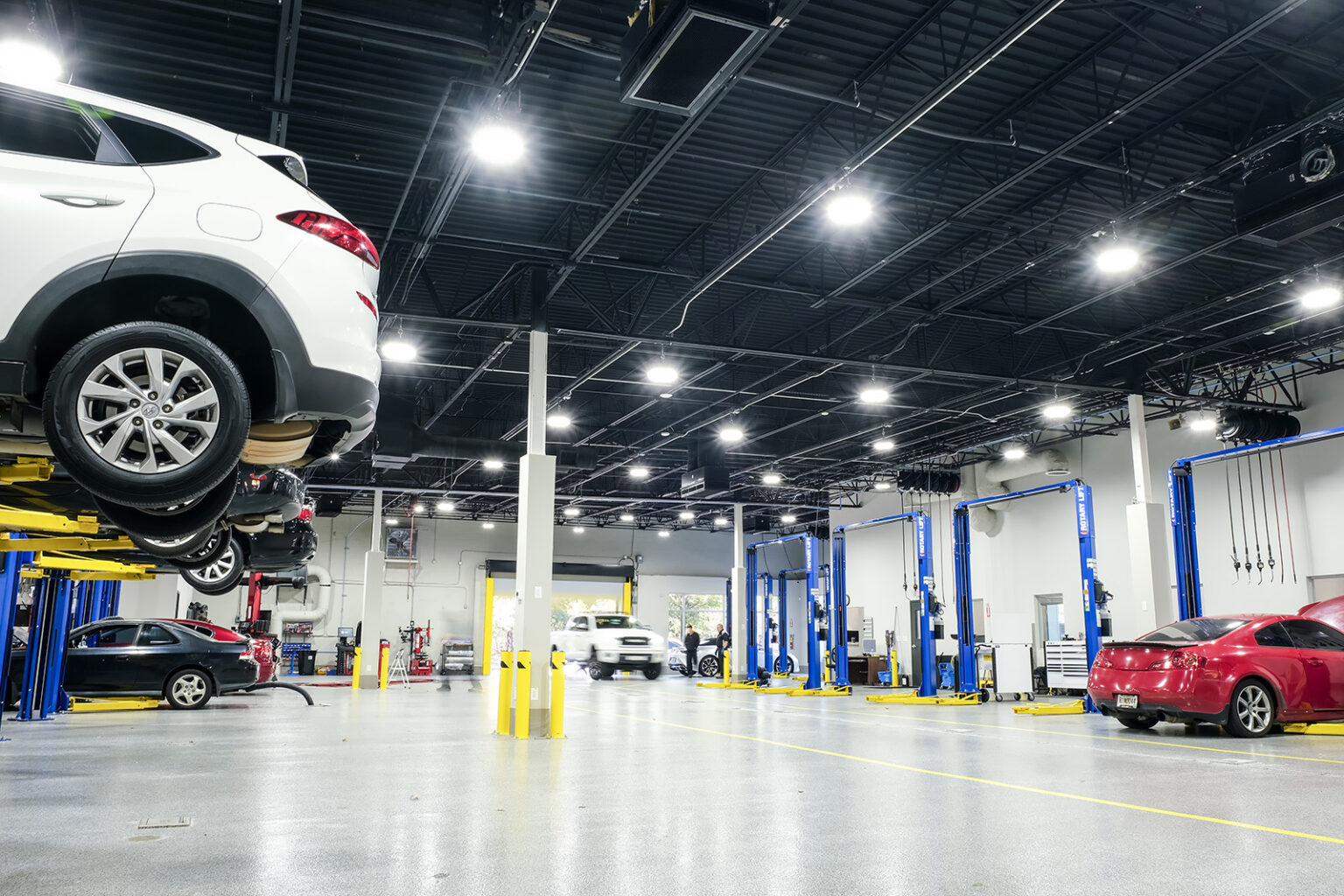All Categories
Featured
Liable for synchronizing the rotation of the crankshaft and camshaft, the timing belt guarantees the engine's valves close and open at the correct times throughout the burning process. If the timing belt falls short, it can result in severe engine damages.
What Is a Timing Belt? The timing belt is a long, toothed rubber or composite belt that attaches the crankshaft to the camshaft(s) in an internal combustion engine. Its job is to keep the engine's shutoffs and pistons in sync, making sure the engine runs successfully. The timing belt additionally controls other crucial engine functions like the water pump and the power steering pump, relying on the car.
![]()
Without the proper timing, the engine's pistons and shutoffs can collide, causing costly and substantial damages. For that reason, replacing the timing belt on timetable is just one of the most effective means to guarantee your engine operates at its best and stop pricey repair services.
Why Timing Belt Replacement Issues. Protecting Against Catastrophic Engine Damages: The most substantial risk of not replacing a used timing belt is engine failure. Replacing the timing belt at the suggested intervals is the finest means to protect against such tragic damages, conserving you from the stress and high price of engine fixings or replacement.
![]()
Maintaining Engine Performance: A timing belt that's in excellent problem guarantees that all engine parts operate in perfect consistency. If the timing belt is worn or stretched, it can create the engine to shed power, experience rough idling, or battle to start. By replacing the timing belt routinely, you can keep your engine performing at peak efficiency, which aids preserve ideal gas economy and performance.
Staying Clear Of Unanticipated Malfunctions: A busted timing belt can trigger your engine to quit suddenly, possibly leaving you stranded in the center of a trip. By changing your timing belt promptly, you decrease the danger of sudden malfunctions that might leave you in a harmful or bothersome circumstance. Routine upkeep lowers the opportunities of experiencing these sort of disturbances, assisting you remain on the road longer without bothering with your engine failing.
Cost-efficient Maintenance: Timing belt substitute is much less pricey than repairing or replacing an engine that's been harmed because of a timing belt failure. While the expense of replacing the timing belt may differ depending on your vehicle and its place, it is much more economical than the costs connected with major engine repair services or replacements. Changing your timing belt at the advised periods can save you a significant quantity of cash over the future by preventing damages to your engine.
When Should You Change Your Timing Belt? The timing belt does not last for life, and the majority of suppliers recommend replacing it between 60,000 and 100,000 miles. Nonetheless, the specific timing relies on your vehicle's make, design, and driving problems, so it's necessary to examine your proprietor's guidebook for particular advice.
Indicators that your timing belt may need interest include uncommon engine sounds (such as a high-pitched whining or ticking audio), trouble beginning the engine, or a reduction in engine performance. If you discover any of these signs, it's critical to have the timing belt evaluated by an expert technician.
![]()
Verdict. The timing belt is a vital yet small component of your engine, and regular replacement is essential to maintaining your lorry's efficiency and protecting against pricey damage. By remaining on top of timing belt upkeep, you'll guarantee your engine runs effectively, avoid unexpected failures, and protect your car from significant repair work. Keep an eye on your automobile's recommended timing belt substitute schedule, and constantly seek advice from with a relied on auto mechanic to maintain your engine running efficiently for years ahead.
What Is a Timing Belt? The timing belt is a long, toothed rubber or composite belt that attaches the crankshaft to the camshaft(s) in an internal combustion engine. Its job is to keep the engine's shutoffs and pistons in sync, making sure the engine runs successfully. The timing belt additionally controls other crucial engine functions like the water pump and the power steering pump, relying on the car.

Without the proper timing, the engine's pistons and shutoffs can collide, causing costly and substantial damages. For that reason, replacing the timing belt on timetable is just one of the most effective means to guarantee your engine operates at its best and stop pricey repair services.
Why Timing Belt Replacement Issues. Protecting Against Catastrophic Engine Damages: The most substantial risk of not replacing a used timing belt is engine failure. Replacing the timing belt at the suggested intervals is the finest means to protect against such tragic damages, conserving you from the stress and high price of engine fixings or replacement.

Maintaining Engine Performance: A timing belt that's in excellent problem guarantees that all engine parts operate in perfect consistency. If the timing belt is worn or stretched, it can create the engine to shed power, experience rough idling, or battle to start. By replacing the timing belt routinely, you can keep your engine performing at peak efficiency, which aids preserve ideal gas economy and performance.
Staying Clear Of Unanticipated Malfunctions: A busted timing belt can trigger your engine to quit suddenly, possibly leaving you stranded in the center of a trip. By changing your timing belt promptly, you decrease the danger of sudden malfunctions that might leave you in a harmful or bothersome circumstance. Routine upkeep lowers the opportunities of experiencing these sort of disturbances, assisting you remain on the road longer without bothering with your engine failing.
Cost-efficient Maintenance: Timing belt substitute is much less pricey than repairing or replacing an engine that's been harmed because of a timing belt failure. While the expense of replacing the timing belt may differ depending on your vehicle and its place, it is much more economical than the costs connected with major engine repair services or replacements. Changing your timing belt at the advised periods can save you a significant quantity of cash over the future by preventing damages to your engine.
When Should You Change Your Timing Belt? The timing belt does not last for life, and the majority of suppliers recommend replacing it between 60,000 and 100,000 miles. Nonetheless, the specific timing relies on your vehicle's make, design, and driving problems, so it's necessary to examine your proprietor's guidebook for particular advice.
Indicators that your timing belt may need interest include uncommon engine sounds (such as a high-pitched whining or ticking audio), trouble beginning the engine, or a reduction in engine performance. If you discover any of these signs, it's critical to have the timing belt evaluated by an expert technician.

Verdict. The timing belt is a vital yet small component of your engine, and regular replacement is essential to maintaining your lorry's efficiency and protecting against pricey damage. By remaining on top of timing belt upkeep, you'll guarantee your engine runs effectively, avoid unexpected failures, and protect your car from significant repair work. Keep an eye on your automobile's recommended timing belt substitute schedule, and constantly seek advice from with a relied on auto mechanic to maintain your engine running efficiently for years ahead.
Latest Posts
Explore Reduce Expenses on Car Maintenance with Montclare Auto Repair’s Exclusive Deals
Published en
1 min read
Unlock Your Financial Partner at WyHy – Key Advantages for Your Money Goals
Published en
1 min read
How Consistent Auto Maintenance at Montclare Auto Repair Saves You Money
Published en
1 min read
More
Latest Posts
Explore Reduce Expenses on Car Maintenance with Montclare Auto Repair’s Exclusive Deals
Published May 25, 25
1 min read
Unlock Your Financial Partner at WyHy – Key Advantages for Your Money Goals
Published May 24, 25
1 min read
How Consistent Auto Maintenance at Montclare Auto Repair Saves You Money
Published May 22, 25
1 min read